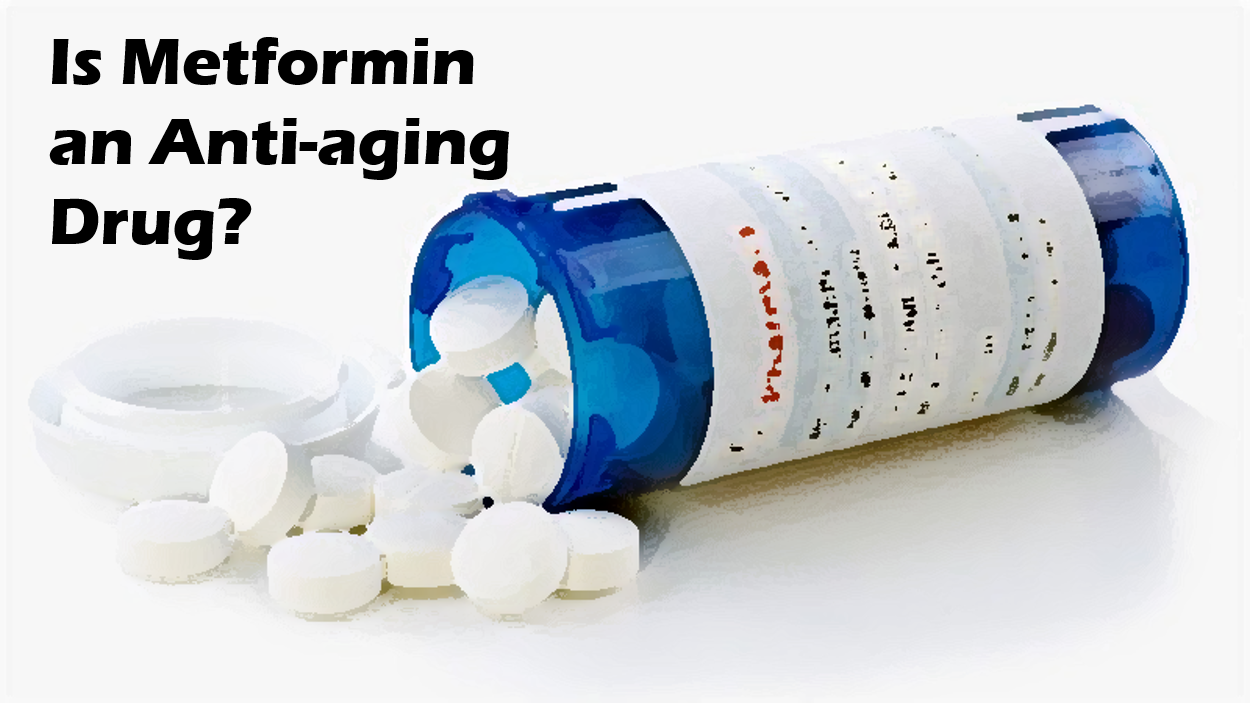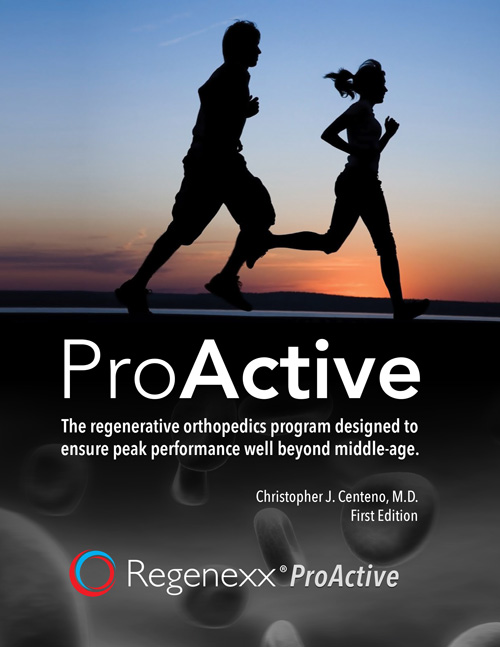I’m an aging athlete who gets orthobiologic therapies to stay active with a family history of obesity, heart disease, and type 2 diabetes. Meaning, I got dealt a bad hand in the grand poker game of genetics. Recently some groundbreaking research came out on Metformin and how it may slow aging, which coincided with my doctor wanting me to take it. So did I take it? Should I take it? Should you take it?
Metformin and Reversing the Body’s Biological Clock
I have had a love-hate relationship with Metformin ever since my doctor (yes we doctors have doctors too) said I might consider taking it for blood sugar control. Why? I pride myself on a really good diet, but I’ve had a blood sugar control problem since I was a kid. So should I take it or chuck it? This new study caught my eye.
Ther new study is the TRIIM trial which tested nine white guys who were about my age (1). They took Human Growth Hormone, Metformin, and DHEA. I had tried HGH, but thought that it whacked out my blood sugar a bit, which is why it was used here as it’s a blood sugar stabilizer. The HGH has the impact of stimulating cellular growth and the DHEA increases testosterone levels.

The researchers also looked at ta 4 epigenetic clocks that measured aging. Not only did the patient’s age reverse on these tests, but the speed of that reversal accelerated as the year trial wore on. Meaning they got young faster in the last 3 months of taking these medications.
Correlation Is Not Causation, But It’s the Way to Bet
Metformin is considered a senolytic, which is a medical term that means it gets rid of aged or dying cells. Quercitin and Fisetin (dietary supplements) are also known as senolytics (3). The drug works in the gut to control appetite, food intake, and body weight through various hormones. It’s also an mTOR inhibitor, which is a target of anti-aging therapies and research. This is the system that’s activated in caloric restriction (fasting).
There is some evidence that Metformin may slightly decrease the likelihood of heart attacks in type 2 diabetics, but not stroke (4). Other studies of diabetics taking Metformin showed decreased rates of cancer, heart disease, and cognitive impairment and lower rates of all-cause death (5,6). This has caused the launching of several large studies on using Metformin as an anti-aging drug and also this statement, “Correlation Is Not Causation, but It’s the Way to Bet”. Meaning, medical experts see enough happening in large studies on Metformin that suggests it has anti-aging and protective properties that they have pulled the trigger on clinical trials in normal aging people.
Could there be problems? In one study, Metformin blunted the ability to make muscles bigger with strength training (2). Metformin can also decrease vitamin B levels, so it’s recommended that a B-complex be taken with the drug (7). In addition, outside of this small study, no one is quite sure what happens when normal patients with excellent blood sugar control take this drug long-term.
Will I Take Metformin?
Given my history of poor blood sugar control and the data, I’ve decided to bite the bullet for now and take the drug. As an aging athlete, I’ll keep an eye out for smaller muscles, but given I’m already on a testosterone supplement and DHEA, I doubt that will be an issue. The bigger question is whether I’ll start an HGH promoter like sermorelin, which my doctor also recommended.
Yes, we doctors have doctors. We likely don’t choose them like the average person, so the doctors who care for doctors tend themselves to be special doctors. By the way, if you want to know who my doctor is, that’s Julie McCallen of the local Cenegenics practice. I’ve referred many patients to Julie through the years and she’s a true expert at managing hormones for age management. I’ll never forget a friend we sent to her who ate like a superstar but never lost weight. Every time I see her now that Julie fixed her hormones I can hardly recognize her.
As I’ve discussed before, my book ProActive has all of the stuff I’ve found to try to stay active and healthy as you age. Also how to be that person in their 70s or 80s that is still doing stuff that only 40 years do. Click on the book cover below to read that book:
The upshot? A key component of staying active is controlling inflammation and the aging process itself. You may need some help there as I know I do, hence I’m now on Metformin. Talk to your doctor to see if this is right for you or if you get a blank stare, I can always refer to my doctor!
_____________________________________________________
References:
(1) Fahy, GM, Brooke, RT, Watson, JP, et al. Reversal of epigenetic aging and immunosenescent trends in humans. Aging Cell. 2019; 00:e13028. https://doi.org/10.1111/acel.13028
(2) Walton RG, Dungan CM, Long DE, et al. Metformin blunts muscle hypertrophy in response to progressive resistance exercise training in older adults: A randomized, double-blind, placebo-controlled, multicenter trial: The MASTERS trial. Aging Cell. 2019 Sep 26:e13039. doi: 10.1111/acel.13039.
(3) Glossmann H, H, Lutz O, M, D: Metformin and Aging: A Review. Gerontology 2019. doi: 10.1159/000502257
(4) Griffin SJ, Leaver JK, Irving GJ. Impact of metformin on cardiovascular disease: a meta-analysis of randomised trials among people with type 2 diabetes. Diabetologia. 2017 Sep;60(9):1620–9. https://www.ncbi.nlm.nih.gov/pubmed/28770324
(5) Campbell JM, Bellman SM, Stephenson MD, Lisy K. Metformin reduces all-cause mortality and diseases of ageing independent of its effect on diabetes control: a systematic review and meta-analysis. Ageing Res Rev. 2017 Nov;40:31–44. https://www.ncbi.nlm.nih.gov/pubmed/28802803
(6) Bannister CA, Holden SE, Jenkins-Jones S, Morgan CL, Halcox JP, Schernthaner G, et al. Can people with type 2 diabetes live longer than those without? A comparison of mortality in people initiated with metformin or sulphonylurea monotherapy and matched, nondiabetic controls. Diabetes Obes Metab. 2014 Nov;16(11):1165–73. https://www.ncbi.nlm.nih.gov/pubmed/25041462
(7) Hasan NU, Makki MU, Abid I, Abid Butt MUR. Association Of Vitamin B12 Deficiency With Intake Of Oral Metformin In Diabetic Patients. J Ayub Med Coll Abbottabad. 2019 Jan-Mar;31(1):72-75. https://www.ncbi.nlm.nih.gov/pubmed/30868788

